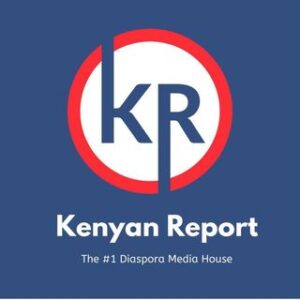In Kenya, a new trend is emerging among the elite class of parents who are willing to spare no expense to provide the best possible education for their young children.
Early childhood education, which starts from one and a half years to six years, has become a new luxury for those seeking to secure a higher social status and invest heavily in their children’s future.
For bespoke education, some Kenyan parents are willing to pay up to Sh2.7 million for children aged under seven years.
In addition to the high tuition fees, they also indulge in various extracurricular activities, such as learning how to ride a horse or playing musical instruments.
These activities not only spark curiosity in children but also enhance their learning experience.
Carol Ondembo, a mother-of-two, is one of the parents who enrolled her daughter in an international kindergarten. She pays Sh111,800 per term for her four-year-old daughter at the prestigious Braeburn Imani International School.
While the cost may seem staggering, Mrs. Ondembo believes it is an investment in much more than just education.
“There is more a parent pays for than a child getting education. We pay for a child to acquire good mannerism, get exposure that she would not have got in a normal school and learn in a pretty good environment,” she explains. The school’s focus on personalized attention is evident, with a class size of 10 to 12 children attended to by three teachers, fostering engaged learning.
The high demand for international education has made Nairobi the most expensive city in Africa for international schools, charging fees of up to Sh2.9 million a year.
These schools offer curricula that are skills and competence-based, such as the International General Certificate of Secondary Education (IGCSE) or International Baccalaureate (IB), catering to a child’s individual progress rather than a one-size-fits-all approach.
Jane Mwangi, the Head of Secretariat at the Kenya Association of International Schools, emphasizes the benefits of such education, stating, “Despite the high fees, the pupils can read, write, express themselves, understand their bodies, go to the toilet unaccompanied, and function independently than they could without this foundation.”
The international kindergartens cater not only to Kenyan children but also to foreigners living in Kenya. To meet the demands of such a discerning clientele, these schools hire qualified graduate teachers and invest in top-notch facilities, making them comparable to schools in the US or UK.
One of the most significant advantages of these elite kindergartens is their focus on activities beyond the classroom. Swimming, horse riding, soccer training, and even learning French from native speakers are part of the comprehensive curriculum. Such activities are seen as essential for early skill development and to prepare children for their future.
Kate Jackson, Senior Admissions, and Communications Officer at Sabis International School in Nairobi’s Runda suburb explains, “In KG2, they learn how to blend to prepare for intense reading. Being young, they have to be continually engaged through play. We have a racetrack, an infant heated 13-meter swimming pool to learn to swim.”
The commitment to holistic development comes with a cost. Sabis charges approximately Sh670,000 per year for kindergarten tuition. In addition to this, parents also incur costs for books, snacks, lunch, and transport. The high fees are necessary to maintain the standard of facilities and teaching required to offer a world-class education.
However, Jane Mwangi cautions against assuming that such pricing leads to massive profits for school owners. She explains, “Running a kindergarten is not a cheap affair. When you quantify it, you find the schools hardly make money from the kindergartens. Education as a business is a labor of love. It can take 11 years or more to break even, and hence it has to be a long-term investment.”
Not all families can afford the luxury of such high-end education. In Kenya, there are various options for early childhood education, ranging from public schools, which are more affordable or even free, to private schools that offer different fee structures depending on their reputation and facilities.
Ultimately, the cost of early childhood education should be balanced with the quality of education and the financial capabilities of the family. While elite international kindergartens offer an extraordinary learning experience, parents should also consider the overall benefits their children will gain and the long-term impact on their future success.


